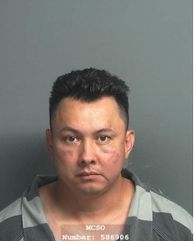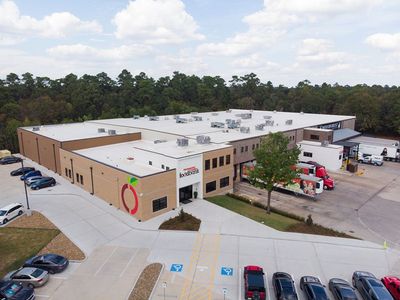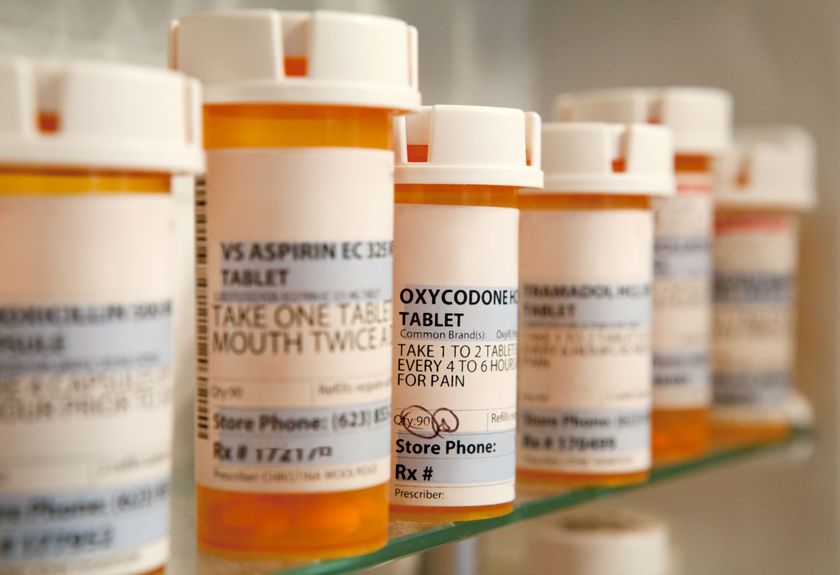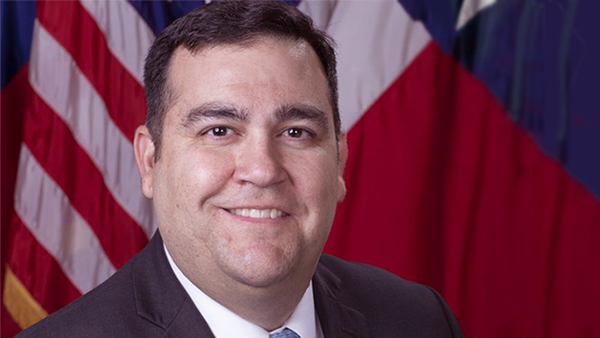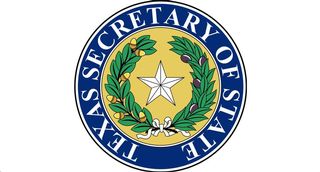- Sections :
- Crime & Public Safety
- Restaurants & Food
- Sports
- More
Categories
New Rules, New Permits - What Does It All Mean?

MONTGOMERY COUNTY, TX -- On September 8th, the Lone Star GCD's Board of Directors unanimously voted to approve new District rules. The new rules play a big part in the Board's policy and will have an effect on many of the District's permit holders. Most changes affect permit holders who have non-exempt wells although some changes do impact exempt well owners who are not required to have permits. So, what does it all mean? To help effectively communicate the changes, the District will be releasing a 4-topic series of educational press releases and this is the first one.
As many of our permit holders know, we are in the midst of permit renewal season. This is the time when District staff sends out a permit renewal form with the request that each permit holder review and return. This process allows the District to collect any new or changed information and reminds the permit holder to evaluate their needs for the upcoming year and let the District know if that need is anticipated to change. The good news is that the intent for the renewal process does not change with the new rules. What does change is the information the District is requesting the permittee to confirm and the permit term.
Changes in 2021
The upcoming 2021 permit renewal form will look a bit different. For example, this year we will be asking for additional information on the wells associated with the permit. The new permit renewals will ask:
• The aquifer from which each well is producing,
• The size of each well pump's horsepower, and
• The maximum pumping rate that the well pump is capable of producing.
This information is necessary so the District can manage by aquifer and implement its new spacing rule, which requires all new, non-exempt wells to be spaced from existing wells based on the proposed well's pumping rate. Spacing rules help minimize (as practicable as possible) the drawdown of the water table or reduction of artesian pressure and prevent or lessen interference between wells. Because the District will start issuing permits by aquifer formation in 2021, we need to know in which formation each permitted well is drilled. Permitting by aquifer formation will protect your right to produce groundwater. It allows the District to easily track production in a specific formation. And, if there is a potential future need to curtail production to achieve the desired future condition in a given aquifer, the District can proportionally adjust only the permits in the affected aquifer (as opposed to all district permits if there was no aquifer designation).
Another important change in the rules is the 60-day grace period for well registration. This allows all exempt well owners to register their wells with no penalty attached. Exempt wells are typically single-family residential or livestock wells and are generally not required to have a permit, but all wells drilled in Montgomery County should be registered with the District. Therefore, if you have not yet registered your exempt well, you can do so by November 7, 2020 with no penalty for failing to previously register. By registering your well, you are protecting your well. If the District does not have a well registration on file for your exempt well, it cannot consider potential impacts to your exempt well from a proposed new well and it cannot protect your exempt well from potential interference from a new well proposed to be drilled near your exempt well.
Another significant change to permitting under the new District rules is that all permits will be issued for perpetual terms. Perpetual is just a fancy word for continual or ongoing. It means your permit will remain in effect unless amended or revoked and that you will no longer be required to renew it each year. Even though you will no longer be required to renew your permit every year, the District will conduct a formal permit review every five (5) years, and an informal permit review as needed. In other words, your permit will be reviewed at least once every five years to verify the accuracy of information or determine if any changes are necessary. This does not mean that you cannot amend your permit or that you have to wait 5 years to amend your permit. The District's rules still follow demand-based allocation, which means the District reviews and issues permits based on the needs or demands of a permit holder. Should a permit holder's demand increase such that it would require additional groundwater to meet the demand change, permit holders may file an application to amend their permit. Now, what has been done in the past and what these new rules serve to avoid, is the need to request a one-time increase or request an increase at the beginning of the year only to request a decrease after you realize you did not need the increase after all. Typically, one-time or retroactive changes have been made to avoid overpumpage fees and/or payment of water use fees in a given year. What the District hopes to accomplish with the change in permit terms, is for permit holders to seriously evaluate their needs and only seek amendments to reflect a true change in need. One benefit to perpetual permit terms is that unless there is a need to change something with your permit, you will not be required to renew your permit - that is one less piece of paper we have to keep up with! District staff will still be in touch with permittees during reviews and we request that all permittees stay in touch with us as well. Let us know if you have a change - whether it's to amend your permit or simply to change contact or owner information - we still want to hear from you!
Please be on the lookout for permit renewal information from the District in the next few weeks. During this renewal process, your permit will be renewed and reissued for a perpetual term. We know this is new and different, as is with a lot that has gone on in 2020, but the District's Board of Directors and staff want you to know we are still here to answer questions and provide assistance. District staff have been hard at work to make this transition to new rules a seamless one. Thank you in advance for your patience and willingness to accept change.
Be sure to keep an eye out for our next educational release on the District's history and how we got where we are today!
A copy of the approved District Rules, a summary of the amendments and Frequently Asked Questions on the new rules can be found on the District's Management & Rules page - https://www.lonestargcd.org/district-rules-1. For more information on the Lone Star Groundwater Conservation District, please visit www.LoneStarGCD.org or follow us on www.Facebook.com/LoneStarWater. For questions, please contact the District at (936) 494-3436.
As many of our permit holders know, we are in the midst of permit renewal season. This is the time when District staff sends out a permit renewal form with the request that each permit holder review and return. This process allows the District to collect any new or changed information and reminds the permit holder to evaluate their needs for the upcoming year and let the District know if that need is anticipated to change. The good news is that the intent for the renewal process does not change with the new rules. What does change is the information the District is requesting the permittee to confirm and the permit term.
Changes in 2021
The upcoming 2021 permit renewal form will look a bit different. For example, this year we will be asking for additional information on the wells associated with the permit. The new permit renewals will ask:
• The aquifer from which each well is producing,
• The size of each well pump's horsepower, and
• The maximum pumping rate that the well pump is capable of producing.
This information is necessary so the District can manage by aquifer and implement its new spacing rule, which requires all new, non-exempt wells to be spaced from existing wells based on the proposed well's pumping rate. Spacing rules help minimize (as practicable as possible) the drawdown of the water table or reduction of artesian pressure and prevent or lessen interference between wells. Because the District will start issuing permits by aquifer formation in 2021, we need to know in which formation each permitted well is drilled. Permitting by aquifer formation will protect your right to produce groundwater. It allows the District to easily track production in a specific formation. And, if there is a potential future need to curtail production to achieve the desired future condition in a given aquifer, the District can proportionally adjust only the permits in the affected aquifer (as opposed to all district permits if there was no aquifer designation).
Another important change in the rules is the 60-day grace period for well registration. This allows all exempt well owners to register their wells with no penalty attached. Exempt wells are typically single-family residential or livestock wells and are generally not required to have a permit, but all wells drilled in Montgomery County should be registered with the District. Therefore, if you have not yet registered your exempt well, you can do so by November 7, 2020 with no penalty for failing to previously register. By registering your well, you are protecting your well. If the District does not have a well registration on file for your exempt well, it cannot consider potential impacts to your exempt well from a proposed new well and it cannot protect your exempt well from potential interference from a new well proposed to be drilled near your exempt well.
Another significant change to permitting under the new District rules is that all permits will be issued for perpetual terms. Perpetual is just a fancy word for continual or ongoing. It means your permit will remain in effect unless amended or revoked and that you will no longer be required to renew it each year. Even though you will no longer be required to renew your permit every year, the District will conduct a formal permit review every five (5) years, and an informal permit review as needed. In other words, your permit will be reviewed at least once every five years to verify the accuracy of information or determine if any changes are necessary. This does not mean that you cannot amend your permit or that you have to wait 5 years to amend your permit. The District's rules still follow demand-based allocation, which means the District reviews and issues permits based on the needs or demands of a permit holder. Should a permit holder's demand increase such that it would require additional groundwater to meet the demand change, permit holders may file an application to amend their permit. Now, what has been done in the past and what these new rules serve to avoid, is the need to request a one-time increase or request an increase at the beginning of the year only to request a decrease after you realize you did not need the increase after all. Typically, one-time or retroactive changes have been made to avoid overpumpage fees and/or payment of water use fees in a given year. What the District hopes to accomplish with the change in permit terms, is for permit holders to seriously evaluate their needs and only seek amendments to reflect a true change in need. One benefit to perpetual permit terms is that unless there is a need to change something with your permit, you will not be required to renew your permit - that is one less piece of paper we have to keep up with! District staff will still be in touch with permittees during reviews and we request that all permittees stay in touch with us as well. Let us know if you have a change - whether it's to amend your permit or simply to change contact or owner information - we still want to hear from you!
Please be on the lookout for permit renewal information from the District in the next few weeks. During this renewal process, your permit will be renewed and reissued for a perpetual term. We know this is new and different, as is with a lot that has gone on in 2020, but the District's Board of Directors and staff want you to know we are still here to answer questions and provide assistance. District staff have been hard at work to make this transition to new rules a seamless one. Thank you in advance for your patience and willingness to accept change.
Be sure to keep an eye out for our next educational release on the District's history and how we got where we are today!
A copy of the approved District Rules, a summary of the amendments and Frequently Asked Questions on the new rules can be found on the District's Management & Rules page - https://www.lonestargcd.org/district-rules-1. For more information on the Lone Star Groundwater Conservation District, please visit www.LoneStarGCD.org or follow us on www.Facebook.com/LoneStarWater. For questions, please contact the District at (936) 494-3436.
Comments •

